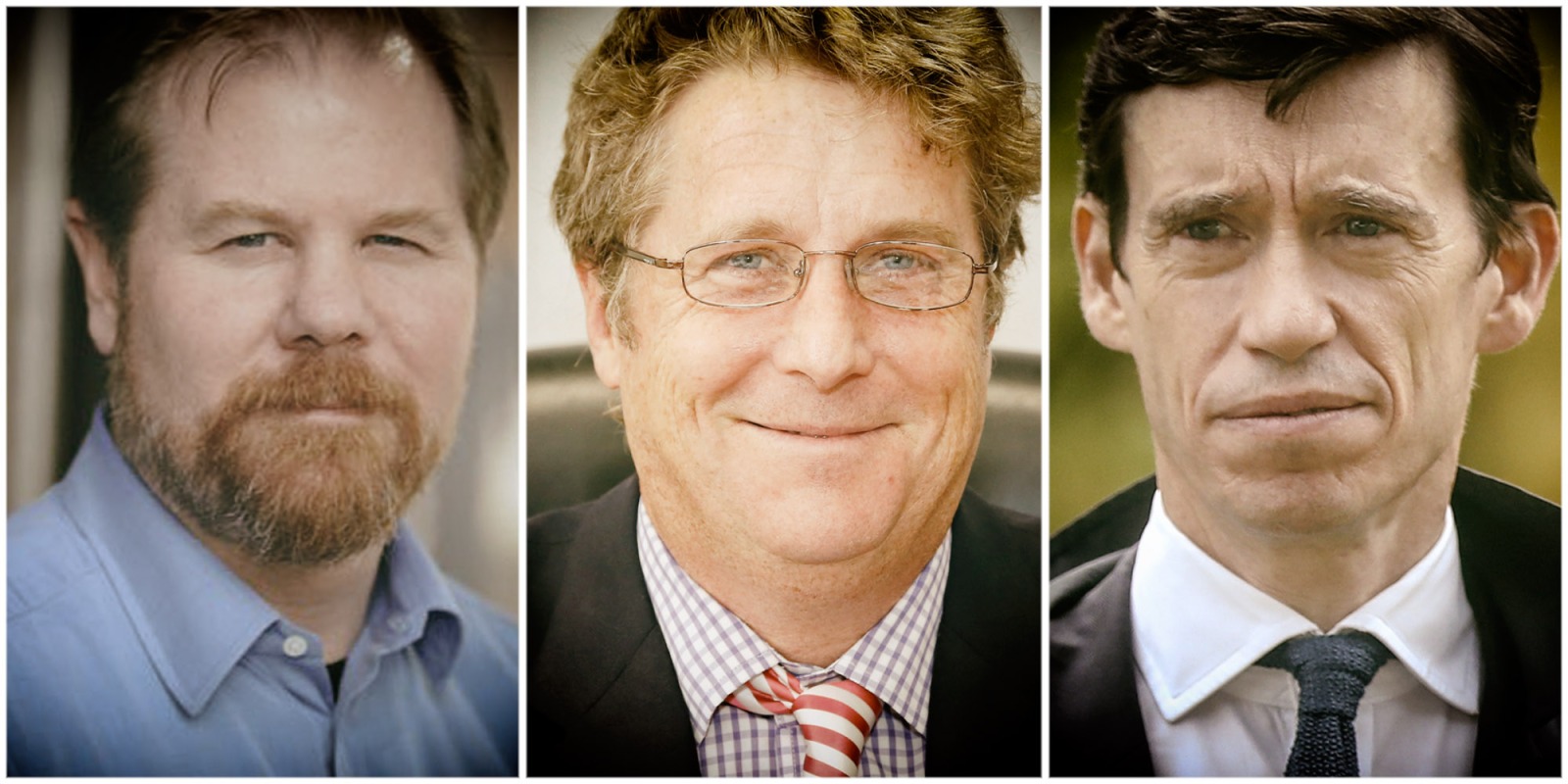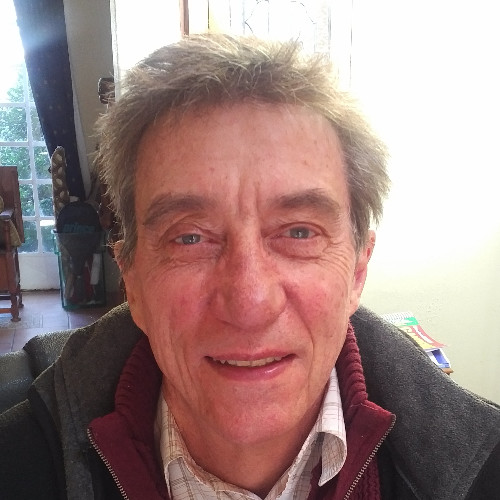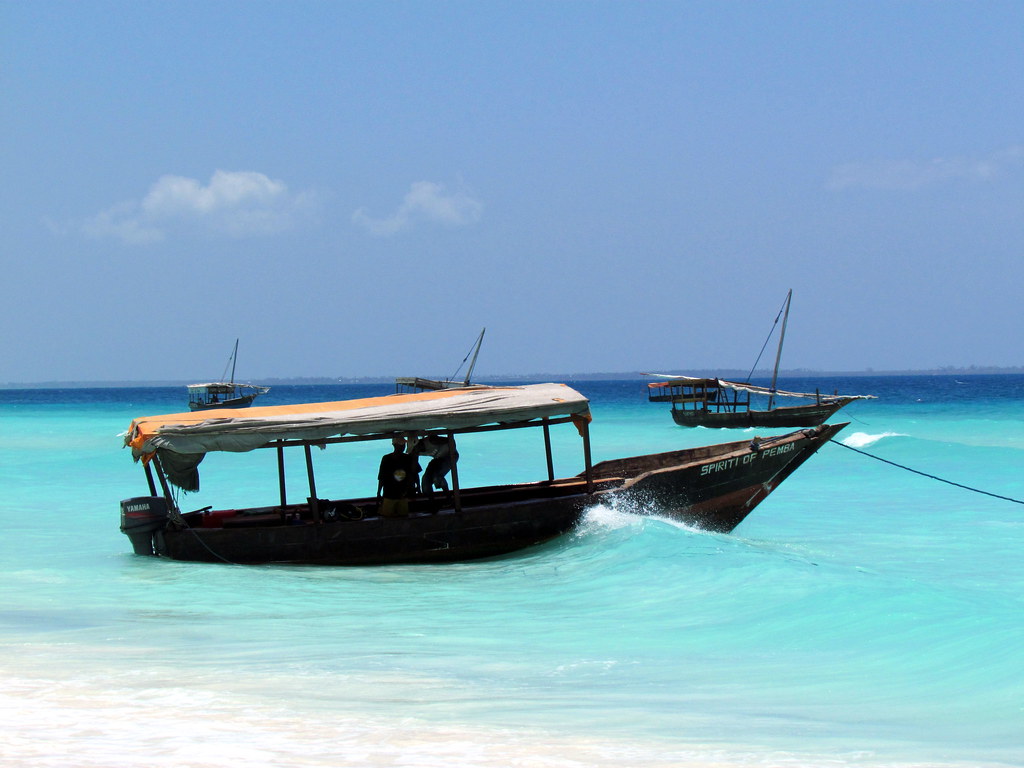News
Stalingrad on the Dnieper — Putin Could Resort to use of Tactical Nuclear Weapons in Ukraine, Expert Warns
Russian President Vladimir Putin is 'looking for victory and looking to ramp up the violence to get it', says David Kilcullen, adviser to Condoleezza Rice when she was secretary of state under US President George W Bush.

Russia's war against Ukraine is likely to drag on for a long time as the Russian military intensifies its shelling of Ukraine's cities to try to subdue the country. The battle to take the capital, Kyiv, could become a “Stalingrad on the Dnieper” as Russian President Vladimir Putin resorts to ever-heavier artillery — which could include tactical nuclear weapons, experts have warned.
Putin is not looking for an off-ramp from the war as many have suggested, the experts noted in a Daily Maverick webinar on Tuesday, What Does Putin's Ukraine Gamble Change?
Rory Stewart, a former UK secretary of state for international development, recalled that US President Joe Biden and Secretary of State Antony Blinken had already offered Putin substantial concessions before the war, including a freeze on Nato expansion and the full implementation of the 2014 Minsk agreements, which entailed substantial autonomy for the pro-Russian, separatist regions of Donetsk and Luhansk. But Putin still invaded.
David Kilcullen, adviser to Condoleezza Rice when she was secretary of state under President George W Bush, agreed with Stewart that Putin was not looking for an off-ramp.
“He's looking for victory and looking to ramp up the violence to get it,” Kilcullen said.
He noted that the Ukrainian military had surprised Putin because it was about 20 times stronger and better than it had been in 2014 when Russia annexed Crimea, in part because of Western training and the supply of some 20,000 anti-tank and anti-aircraft missiles.
Kilcullen noted that the decisive moment in the war had been on the morning of the Russian invasion when Russian special forces in helicopters had tried to capture an airport just north of Kyiv. This would have been the staging point for capturing the city.
But a small group of Ukrainian forces had shot down most of the helicopters with missiles and forced the Russians back. From there the Russians had lost dozens to hundreds of aircraft and armoured vehicles — mainly because they assumed an air superiority that they didn't have.
At the start, the Ukrainians were even using Google to pinpoint the Russian armour and destroy it. The Russians were bogged down by poor logistics as food, water and fuel ran out.
“But this doesn't mean they can't win. They still have significant forces to bring to bear which they are bringing in from Vladivostok and Arctic. They are also rumoured to be bringing in troops from Chechnya and Syria,” Kilcullen said.
Kilcullen noted that despite Russia's presumed expertise in cyberwarfare, Ukraine had been winning the information war on social media. But he cautioned that this might mean that the war might not be going as well for Ukraine as its social media was depicting.
He nevertheless thought the Russians would struggle to encircle, let alone take the major Ukrainian cities. “But they have enormous ability to just keep going — with a sledgehammer effect.” He thought Putin would escalate firepower, using ever-larger artillery, to try to get Ukraine to crack.
This could even include tactical nuclear weapons, which the Russians regarded as no more than “large artillery”.
The battle for Kyiv — with its population of 3.8 million and half a million buildings — could become Stalingrad on the Dnieper, he said, referring to the devastating, six-month battle of World War 2 where the Soviet army stopped the invading German army in its tracks — but at the cost of millions of lives, mostly civilians.
Despite this gloomy prediction, both Kilcullen and Stewart advised against Nato agreeing to enforce a no-fly zone over Ukraine, for which Ukrainian President Volodymyr Zelensky was appealing. Stewart said it would expose Nato aircraft to Russia's very capable anti-aircraft missiles and bring the alliance into direct combat with Russia's forces.
Kilcullen stressed that enforcing a no-fly zone meant going into combat with Russia as it would entail shooting down its aircraft and attacking its anti-aircraft batteries.
“That might not provoke Putin to go nuclear immediately, but it would be a massive escalation and possibly provoke him to attack the Baltic states, for example.”
The smarter option would be to continue funnelling military aid to Ukraine to exhaust the Russian military and to try to ensure that it did not attack the likes of Lithuania and Estonia, he said.
Kilcullen noted that even if Russia and the West managed to cut a peace deal, Ukraine might very well not accept it and could continue fighting. If it lost the conventional war, Ukraine, under the courageous Zelensky, would probably continue an insurgency against the Russian invaders, he suggested.
Stewart agreed that Zelensky had very little incentive to back down now as he had created his reputation with his plucky response to the invasion and his approval ratings in Ukraine had rocketed from under 40% to over 90%.
Kilcullen, Stewart and Greg Mills, director of The Brenthurst Foundation, all agreed that Putin had decided to attack now because he had perceived the West to be weak and divided. Stewart noted that democracy had been waning in the world since about 2005 and more countries had been turning to authoritarian models such as China.
Putin had done considerable research and planning before the invasion, including opinion polls which indicated that Zelensky was unpopular and corrupt and that there was a substantial pro-Russian sentiment. He thought it would be easy to topple Zelensky and replace him with a more pliable leader.
He also calculated that the West would not respond as strongly as it had — mainly because of its weak response to his annexation of Crimea in 2014.
The biggest surprise for Putin — apart from Ukraine's fierce resistance — had been the fast, strong and united Western response to his invasion, the three experts said. Stewart said that the West's sanctions had gone far further than the limited sanctions of the past, basically shutting Russia out of the Western financial system. Together, the US and European economies were about 20 times larger than Russia's and so these sanctions were now inflicting real pain.
“Russia has liked to think of itself as the sleeping giant. But we are now seeing the West has been the sleeping giant. It has proved itself to be formidable,” said Stewart.

This was especially true of Germany, which had always been the most reluctant European power to take on Russia, largely because it is so dependent on Russia's gas for its energy needs. It has also been one of the most pacifist European nations.
Yet the new chancellor, Olaf Scholz, did a 180-degree turn after the invasion of February 24, deciding to send weapons to Ukraine, to steeply increase defence spending to the Nato benchmark of 2% of GDP and to fully endorse Western sanctions against Russia, including cutting off the Nord Stream 2 gas direct pipeline from Russia to Germany.
The experts disagreed about what might end the war. President Cyril Ramaphosa's announcement last Thursday that he had been approached by a third party to mediate barely rated a mention. Mills and Kilcullen thought that Chinese President Xi Jinping was the most likely mediator.
Mills said a quick end to the fighting was in China's interest as the war was doing major damage to the global economy, which Xi depended upon to maintain a sufficient pace of growth to keep his population content.
Kilcullen said Putin had initially counted on Xi for support but had probably been surprised that the Chinese leader had decided instead “to play it down the middle”, including by abstaining from voting against the UN General Assembly resolution condemning the invasion.
Xi had “kept his powder dry” and could now step forward and present himself as the global statesman trying to mediate an end to the conflict.
But Stewart doubted that Xi would want to intervene, because China had a tendency to stay out of such conflicts.
“The question is also, does Xi see it in his interest to intervene?” he asked, suggesting the Chinese leader might see a growing conflict between the two other major global powers as being to China's advantage.
He thought the best chance of ending the war would be for the West to extend sanctions even further by terminating their purchases of Russian oil and gas which were providing Putin with $1-billion a day to finance his war against Ukraine.
Stewart said that doing without Russian oil and gas would be painful for the West but it could be done by implementing energy-saving measures such as cutting speed limits and restricting the use of vehicles.
This article originally appeared on Daily Maverick
Photo: Daily Maverick


